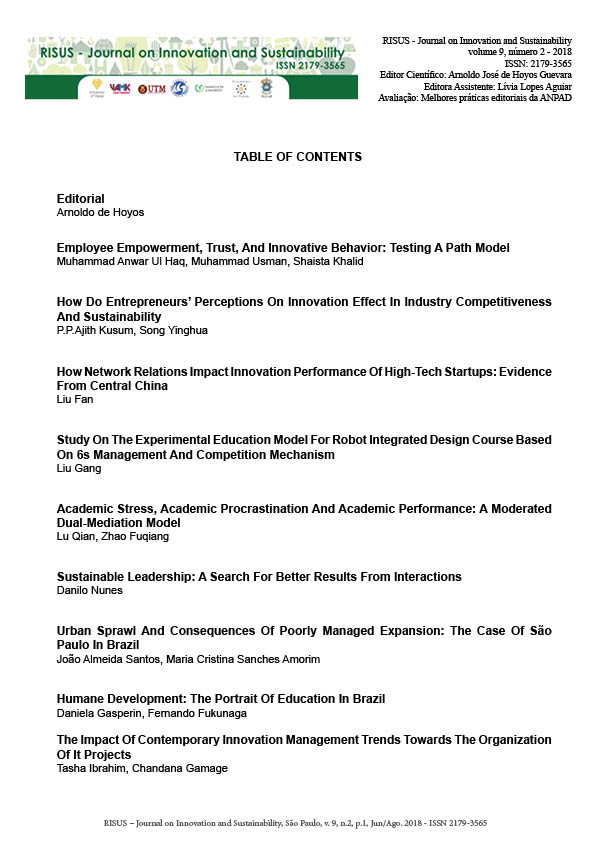HUMANE DEVELOPMENT: THE PORTRAIT OF EDUCATION IN BRAZIL
DOI:
https://doi.org/10.24212/2179-3565.2018v9i2p67-77Keywords:
Human development, Humane development, Education, BrazilAbstract
The Human Development Index (HDI) was created to emphasize that people and their capabilities must be the ultimate criterion for assessing a country’s development, and not only your economic growth. In 2012, the United Nations Development Programme(UNDP) in Brazil, the Institute of Applied Economic Research (IPEAD) and the João Pinheiro Foundation took the challenge of adapting the Global HDI methodology to calculate the HDI municipalities. The HDI municipalities consolidates a dialogue informed and based on development from HDI. This study aims to portray the dimension of education in 5,565 cities in 27 states in Brazil. The result shows that 50% of the States are classified as inadequate, 24% as satisfactory, 16% as unsatisfactory and only 10% as a reference. This evidence makes it possible for the construction of plans of action, such as an incubation program for States classified as unsatisfactory and benchmarking program for countries classified as reference. The education improves the quality of the human factor and modifies the entire picture of the country, because there is no country that has managed to develop without investing in education.Downloads
Published
2018-06-30
Issue
Section
Papers
License
This Journal is licensed under a Creative Commons Attribution-Non Commercial-No Derivers 4.0 International license.
1.The author (s) authorize the publication of the article in the journal;
2.The author (s) warrant that the contribution is original and unpublished and is not in the process of being evaluated in other journal (s);
3. The journal is not responsible for the opinions, ideas and concepts emitted in the texts, as they are the sole responsibility of its author (s);
4. The editors are entitled to make textual adjustments and to adapt the articles to the standards of publication.


